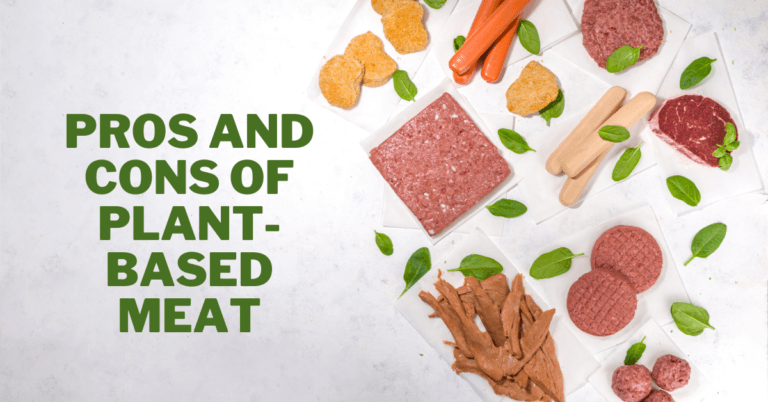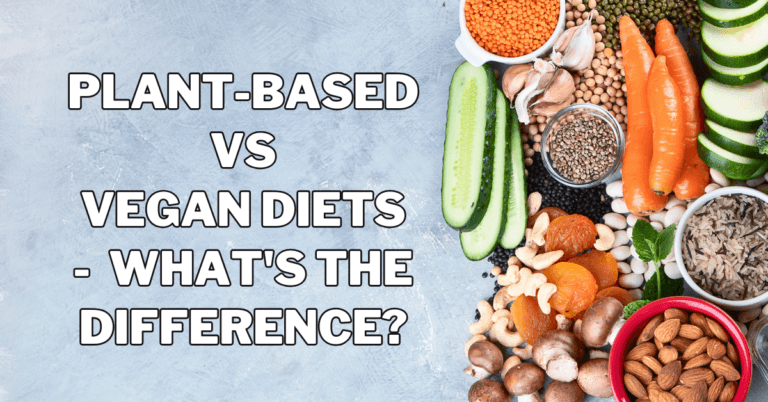Plant-Based Diet For Athletes
Plant-Based Diet For Athletes: Fueling Your Performance
A plant-based diet for athletes provides essential nutrients, boosts energy levels, and supports faster recovery, making it an excellent choice for enhancing overall performance and health.
By emphasizing whole, nutrient-dense foods like fruits, vegetables, legumes, and whole grains, athletes may provide their bodies with vital vitamins, minerals, and antioxidants. This diet supports optimal energy levels, reduces inflammation, and promotes quicker recovery.
As more athletes adopt plant-based lifestyles, the question arises: can a vegan diet provide the necessary nutrition for peak athletic performance?
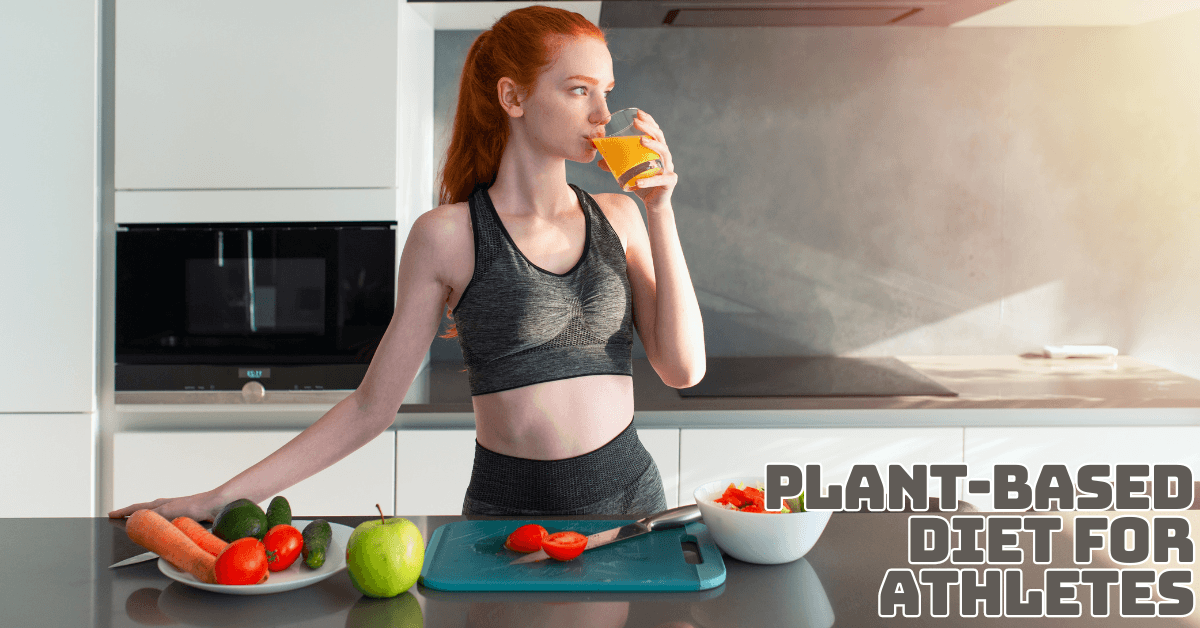
The Benefits Of A Plant-Based Diet For Athletes
A plant-based diet can benefit athletes who want to maximize their performance without sacrificing health and well-being. Here are the benefits you can get as an athlete by consuming a plant-based diet:
1. Enhanced Recovery
A plant-based diet contains antioxidants, vitamins, and minerals that help reduce inflammation and muscle soreness. Nuts, leafy greens, and berries are helpful foods that help you recuperate more quickly from strenuous exercise.
As a result, athletes can train harder and more frequently, enhancing overall performance and reducing recuperation time.

2. Improved Energy Levels
Whole plant foods are rich in complex carbohydrates, which provide essential sustained energy during workouts. Options like quinoa, brown rice, and sweet potatoes release energy gradually, enabling athletes to maintain optimal performance levels throughout their activities. This steady energy supply is crucial for endurance and strength training, helping athletes maximize their potential.
3. Optimal Nutrient Intake
A plant-based diet promotes eating a wide variety of fruits and vegetables, ensuring that athletes receive a well-rounded intake of nutrients.
This nutrient diversity is vital for meeting the increased demands of athletic training. By focusing on whole foods, athletes support their overall health and performance, which is essential for achieving their fitness goals.
4. Weight Management
A plant-based diet is typically higher in fibre and lower in calories, which helps athletes better control their weight. This is particularly important for athletes in sports where weight class or body composition plays a significant role. By choosing plant-based options, athletes can maintain a healthy weight while meeting their nutritional needs.

5. Heart Health
Many plant-based diets contain heart-healthy nutrients, such as fiber, healthy fats, and antioxidants. Eating a diet high in whole grains, nuts, and seeds can help reduce cholesterol and strengthen the heart.
This is particularly important for endurance athletes, who need a healthy heart to operate at their best over extended periods of physical activity.
6. Sustainability
Athletes increasingly choose plant-based diets for environmental reasons, recognizing the impact of meat consumption on the planet.
Reducing meat intake lowers one’s carbon footprint and promotes sustainability. It aligns dietary choices with a commitment to health and environmental stewardship. This awareness helps athletes make choices that benefit their performance and the planet.
7. Diverse Meal Options
A plant-based diet offers diverse meal options for athletes, allowing them to explore various cuisines and flavours while meeting their nutritional needs.
Athletes can explore different cuisines, tastes, and textures, making their meals nutritious and exciting. This variety keeps their diet interesting while still meeting their specific nutritional needs, enhancing overall meal satisfaction.
8. Reduced Risk Of Chronic Diseases
Switching to a plant-based diet can considerably reduce the chance of developing chronic illnesses like diabetes, obesity, and some types of cancer.
This benefits athletes, as maintaining good health is vital for consistent training and competition. A nutritious diet supports long-term well-being and athletic longevity.

9. Mental Clarity And Focus
A nutrient-rich plant-based diet supports cognitive function and mental clarity. Proper nutrition is critical to brain health, allowing athletes to focus and concentrate during training and competitions.
Enhanced mental acuity can improve performance, as athletes can make better decisions under pressure.
10. Long-Term Health Benefits
Athletes support their performance and establish lifelong healthy eating habits by embracing a plant-based diet. This sustainable approach to nutrition fosters both physical and mental well-being, leading to a longer, healthier life. The cumulative benefits of a plant-based diet enhance overall quality of life and athletic success.
Key Nutrients For Athletes
Even though there are many advantages to a plant-based diet, it's crucial to make sure athletes get the nutrition they require. The following are some important nutrients to consider:

1. Carbohydrates
Carbs are vital for athletes, serving as the primary energy source that fuels workouts and aids recovery. Whole grains, fruits, and vegetables—all complex carbs—offer a steady energy supply.
Eating enough carbohydrates before and after exercise restores glycogen stores, guaranteeing peak performance and allowing athletes to train efficiently without fatigue.
2. Protein
Protein is crucial for muscle growth and healing, especially after rigorous training sessions. Lean sources, such as legumes, tofu, nuts, and seeds, supply the necessary amino acids for recovery.
Athletes should aim for a balanced protein intake throughout the day to support muscle rebuilding, enhance strength, and maintain overall physical performance.
3. Fats
Healthy fats, including those in avocados, nuts, and olive oil, provide concentrated energy and support hormone production.
These fats also help the body absorb fat-soluble vitamins crucial for various bodily functions. Athletes should incorporate moderate amounts of healthy fats into their diet to optimize performance, recovery, and overall health.
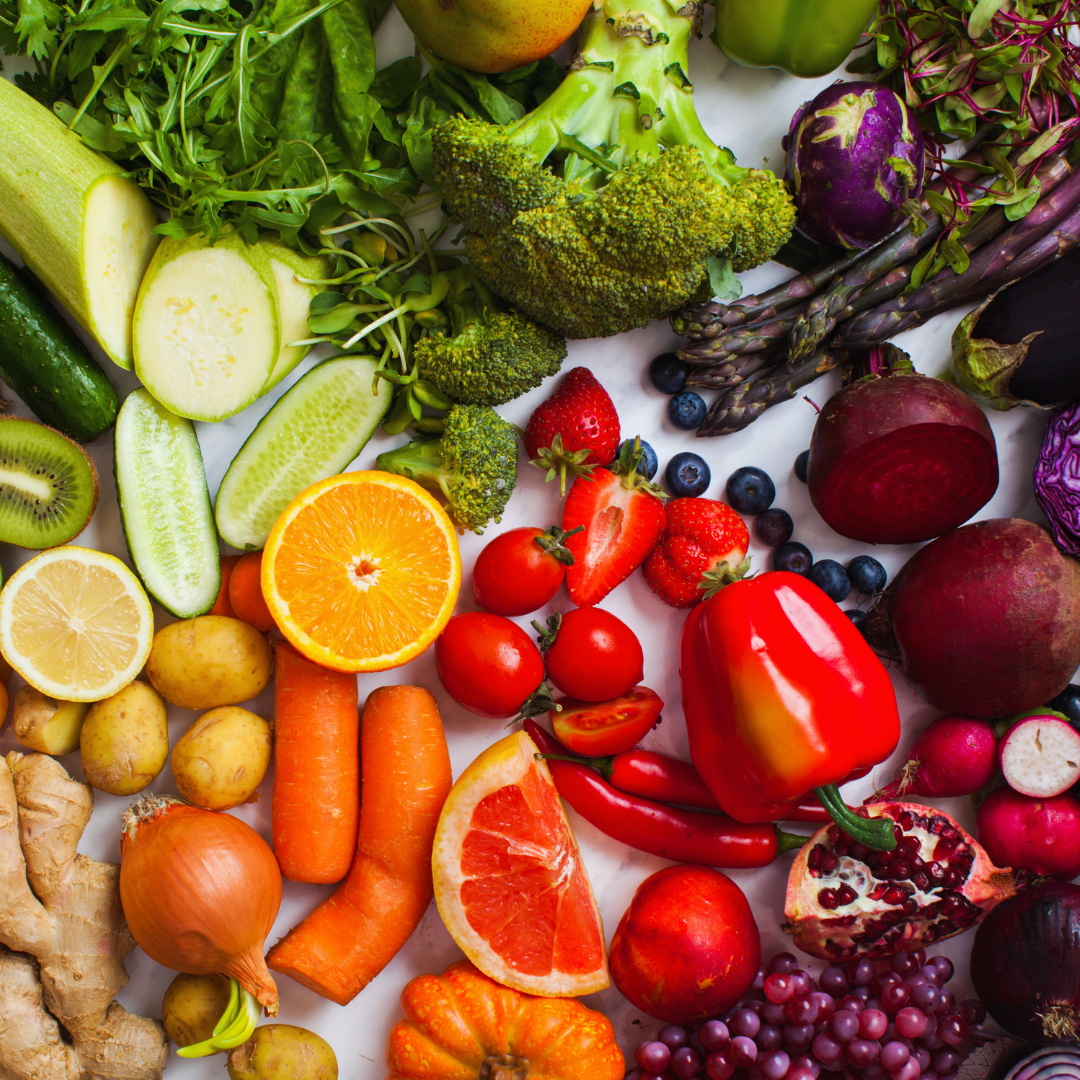
4. Vitamins
Vitamins play significant roles in energy production, immune function, and recovery. B vitamins are crucial for converting food into energy, while vitamin C supports immune health and recovery.
A diverse diet of fruits and vegetables ensures athletes receive the essential vitamins needed for peak performance and overall well-being.
5. Minerals
Calcium, iron, and magnesium are important minerals for bone health, oxygen transport, and muscular function. Athletes should prioritize foods like leafy greens, beans, and fortified plant-based products to meet their mineral needs. Adequate mineral intake helps prevent deficiencies, supports overall health, and enhances athletic performance.

6. Hydration
Staying well-hydrated is essential for both peak performance and recovery. Water supports numerous bodily functions, including temperature regulation and nutrient transport.
Athletes should consume adequate fluids before, during, and after exercise to maintain hydration levels, prevent fatigue, and ensure their bodies function effectively during workouts.
7. Antioxidants
Nuts, fruits, and vegetables all contain antioxidants that can help reduce oxidative stress from rigorous exercise. Nutrients such as vitamins E and C and polyphenols support recovery by reducing inflammation and muscle soreness. Incorporating antioxidant-rich foods into an athlete’s diet allows for effective training and improved overall recovery.
8. Fibre
A high-fibre diet promotes digestive health and helps maintain steady energy levels. Legumes, fruits, vegetables, whole grains, and other high-dietary-fibre foods promote overall well-being and a feeling of fullness. For athletes, fiber is essential for maintaining a healthy weight while supporting their active lifestyle.
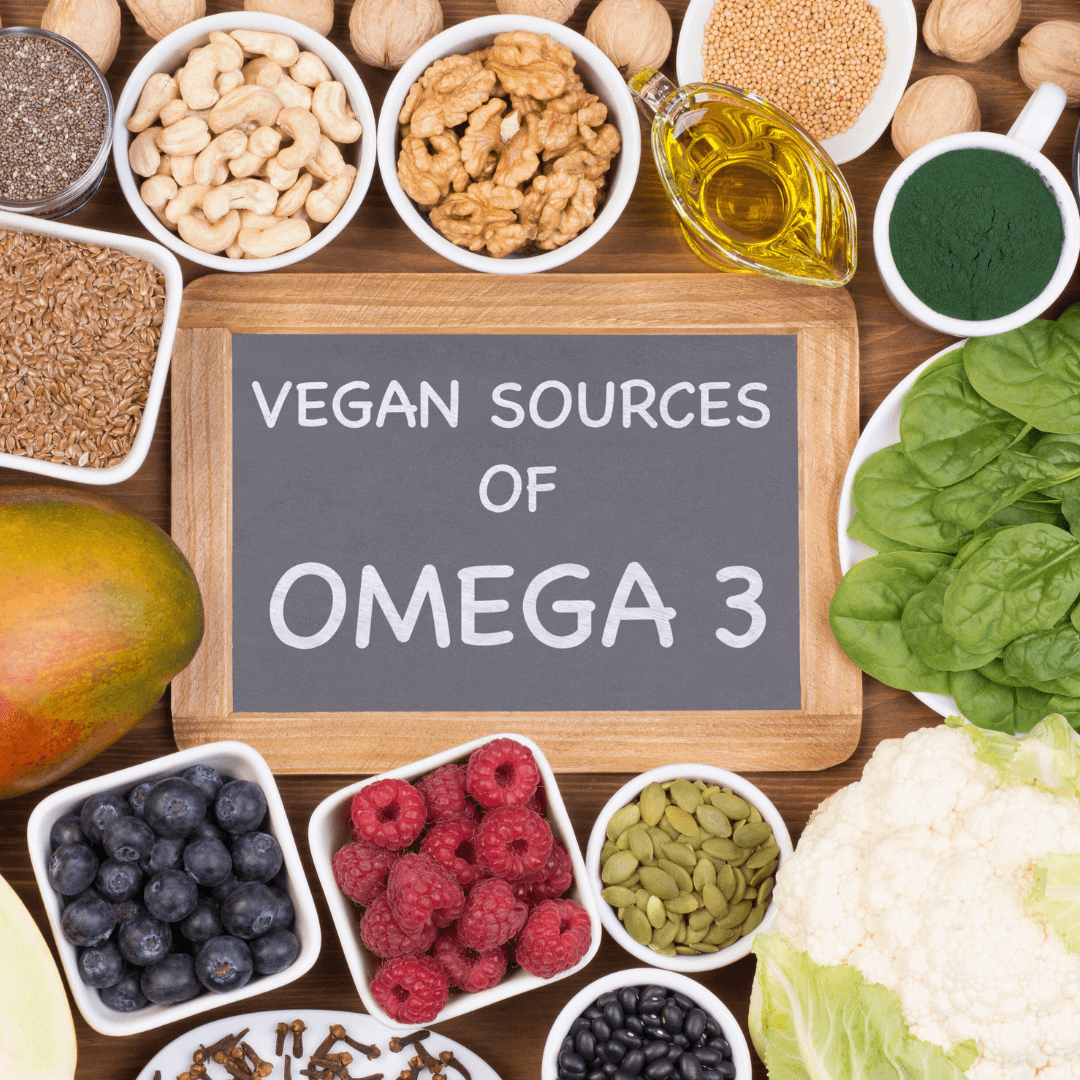
9. Omega-3 Fatty Acids
Omega-3 fatty acids in flaxseeds, chia seeds, and walnuts have anti-inflammatory properties that enhance recovery and support heart health.
These healthy fats may also reduce exercise-induced muscle soreness, making them a beneficial addition to an athlete’s diet for improved performance and recovery.
10. Electrolytes
Electrolytes, which include sodium, potassium, calcium, and magnesium, are necessary for neuron activity, muscular contractions, and fluid homeostasis.
Athletes lose electrolytes through sweat during exercise, making it important to consume electrolyte-rich foods or drinks to replenish lost minerals and sustain optimal performance.
Plant-Based Diet Plan For Athletes
A well-structured plant-based diet for athletes ensures a balanced intake of key nutrients to support performance, recovery, and overall health. Below is a sample meal plan that ensures adequate intake of key nutrients.
Breakfast
● Smoothie Bowl: Blend spinach, banana, almond milk, and protein powder. Top with granola, chia seeds, and mixed berries for added fiber and antioxidants.
● Oatmeal: After cooking, roll oats in almond milk and garnish with fresh fruit, flaxseeds, and sliced almonds.
Snack
● Nut Butter Energy Bites: Mix rolled oats, almond butter, honey, and chocolate chips. Roll into bite-sized balls for a quick, energy-dense snack.
● Fresh Fruit: For some natural sugars and water, grab a piece of seasonal fruit, such as an apple or banana.
Lunch
● Quinoa Salad: Combine cooked quinoa, black beans, cherry tomatoes, bell peppers, and avocado. Dress with olive oil, lime juice, and cilantro for a refreshing meal.
● Hummus and Veggies: Serve a generous portion of hummus with sliced carrots, cucumbers, and bell peppers for dipping.
Evening Snack
● Chia Pudding: Combine chia seeds and almond milk and leave overnight. For a healthy dessert, sprinkle berries and maple syrup on top.
● Herbal Tea: Enjoy calming herbal tea after a long training day.
Dinner
● Stir-Fried Tofu and Vegetables: Sauté tofu mix of colourful vegetables (broccoli, bell peppers, and snap peas) in soy sauce and sesame oil. Serve over brown rice or whole-grain noodles.
● Sweet Potato: Roast sweet potatoes and serve them as a side dish for added carbohydrates and vitamins.
Nutrient Breakdown
● Carbohydrates: Found in oats, quinoa, sweet potatoes, and fruits, these provide sustained energy.
● Protein: Tofu, legumes, nuts, seeds, and whole grains are good sources of protein, which is required for the development and repair of muscles.
● Fats: Healthy fats from nuts, seeds, and avocados support hormone production and nutrient absorption.
● Vitamins & Minerals: Athletes can perform at their best by consuming various fruits and veggies that provide essential vitamins and minerals.
Hydration
Athletes should prioritize hydration throughout the day. Water, herbal teas, and electrolyte-rich drinks can help maintain fluid balance, especially during training and competitions.
This plant-based diet plan supports athletic performance and promotes overall health and sustainability. Tailor it to individual preferences and nutritional needs for the best results!
Tips For Implementing A Plant-Based Diet
Transitioning to a plant-based diet as an athlete can boost performance, speed up recovery, and improve health. Proper planning and focus on key nutrients allow you to maintain energy and achieve peak performance. Here are essential tips to help you thrive on a plant-based diet.
1. Focus On Whole Foods
One key advantage of a plant-based diet is its emphasis on whole, unprocessed foods. Most of your meals should consist of whole grains, legumes, fruits, vegetables, nuts, and seeds.
These foods provide the energy you need for rigorous training and recuperation since they are loaded with vital vitamins, minerals, and nutrients. Furthermore, fibre from whole foods promotes sustained energy and helps to regulate digestion.
Tip: Add a variety of whole grains, such as lentils and black beans, as well as legumes like brown rice and quinoa. Vibrantly coloured fruits and vegetables guarantee a wide variety of nutrients.
2. Prioritize Protein Sources
Protein is critical for muscle repair, recovery, and growth, particularly after strenuous exercise. While many associate protein with animal products, plenty of high-quality plant-based sources can meet your needs. These include legumes (beans, lentils, chickpeas), tofu, tempeh, seitan, edamame, and plant-based protein powders.
Tip: Vary your protein sources to ensure you’re getting all essential amino acids (the building blocks of protein). Combine different foods, such as rice, beans, or peanut butter, with whole-grain bread to achieve a complete amino acid profile.
3. Get Enough Calories
Since plant-based foods are lower in calories than their animal-based counterparts, you may need to consume larger portions to meet your energy needs.
This is especially important for athletes who train hard and burn more calories. To meet your daily energy requirements, focus on calorie-dense plant foods like avocados, nuts, seeds, and healthy oils (such as olive or coconut oil).
Tip: Increase your daily calorie intake by including snacks like trail mix and a smoothie made with plant-based protein powder.
4. Optimize Iron And Calcium Intake
Iron and calcium are essential nutrients that athletes should pay close attention to when transitioning to a plant-based diet.
Iron helps transport oxygen to muscles, which is crucial for athletic performance, while calcium supports bone health and muscle function.
Plant-based iron sources include lentils, spinach, and fortified cereals, but the body less easily absorbs this type of iron (non-heme) than animal-based iron (heme iron). Vitamin C enhances iron absorption, so pair iron-rich foods with citrus fruits or bell peppers.
Almonds, tofu, leafy greens, and fortified plant milk are good sources of calcium. Consider fortified products or supplements if you're not getting enough calcium from food.
Tip: Eat spinach and lentils with a squeeze of lemon juice for better iron absorption. Include fortified plant-based milk or leafy greens like kale in your meals daily to meet your calcium needs.
5. Don’t Forget Healthy Fats
A plant-based diet that includes healthy fats is essential for athletes. Good fats offer sustained energy and support hormone function and nutrient absorption.
Good fats also facilitate fat-soluble vitamin absorption (A, D, E, and K), increase hormone synthesis, and provide energy. Nuts, seeds, avocados, olive oil, and coconut oil are abundant sources of good fats.
Tip: Add flaxseeds or chia seeds to your morning smoothie or oatmeal for an omega-3 boost, and drizzle olive oil on your salads for an extra dose of healthy fats.
6. Plan For Protein Recovery
Recovery is a vital part of athletic training, and the foods you consume influence your ability to repair and regenerate muscles after exercise.
A well-balanced recovery meal includes protein to repair muscles, carbohydrates to replenish glycogen stores, and healthy fats to support overall recovery.
Tip: After a workout, have a smoothie with almond milk, spinach, banana, and a scoop of plant-based protein powder or a quinoa and black bean salad with avocado and olive oil dressing.
7. Stay Hydrated And Consider Electrolytes
Proper hydration is essential for athletic performance, but when you sweat, you also lose electrolytes, particularly sodium, potassium, and magnesium. Foods like bananas, sweet potatoes, leafy greens, and coconut water can replenish electrolytes.
Tip: To maintain fluid balance and avoid dehydration during intense training sessions, consider adding a pinch of sea salt to your water or including electrolyte-rich drinks.
8. Incorporate A Variety Of Foods
Eating diverse plant-based foods can provide a wide range of nutrients. While staples like beans, rice, and greens are important, rotating different foods into your diet—such as quinoa, tempeh, hemp seeds, and different types of vegetables—can help prevent nutrient deficiencies and keep your meals exciting.
Tip: Plan your meals around different cuisines—try Mediterranean, Mexican, or Asian plant-based dishes to keep things fresh and flavorful.
9. Supplement Wisely
A well-balanced plant-based diet may provide the majority of necessary nutrients; however, some vitamins and minerals can be difficult to obtain.
To guarantee the best possible health and performance, athletes who consume a plant-based diet should be aware of any possible nutrient deficiencies, such as those involving omega-3 fatty acids and vitamin B12.
Walnuts and flaxseeds are great sources of omega-3 fatty acids, essential for lowering inflammation and promoting brain function, but you may still need to take supplements.
Tip: Consider supplements for vitamin B12, vitamin D and omega-3s (from algae-based sources).
10. Listen To Your Body
When transitioning to a plant-based diet, it's important to listen to your body’s signals. Review your diet if you experience weariness or observe a decrease in your performance to ensure you get enough nutrients.
Every athlete’s body is different, so adjusting your food intake based on how you feel and perform is crucial for long-term success.
Tip: Keep a food journal during your transition to track how different meals affect your energy levels, performance, and recovery.
FAQ
1. Can A Plant-Based Diet Provide Athletes With Adequate Protein?
Answer: Yes! Athletes can obtain sufficient protein from various plant sources such as lentils, chickpeas, quinoa, tofu, tempeh, and seitan. Combining different protein sources can also ensure all essential amino acids are consumed.
2. Is A Plant-Based Diet Suitable For All Types Of Athletes?
Answer: Yes! Whether you’re an endurance athlete, weightlifter, or recreational athlete, a plant-based diet can be tailored to meet your energy and nutrient needs.
3. Can A Plant-Based Diet Improve Athletic Performance?
Answer: Many athletes report improved performance, increased stamina, and quicker recovery times when adopting a plant-based diet, thanks to the high levels of antioxidants and anti-inflammatory properties in plant foods.
4. What Should I Eat Before And After Workouts On A Plant-Based Diet?
Answer: Before workouts, opt for easily digestible carbohydrates like bananas or oatmeal. After workouts, focus on a combination of protein and carbohydrates, such as a smoothie with plant-based protein powder, fruits, and spinach.
Conclusion
A well-planned plant-based diet for athletes can significantly enhance performance, recovery, and long-term health while promoting sustainability.
With proper planning, this diet supports muscle growth, performance, and overall well-being while reducing the risk of chronic diseases.
Ultimately, a plant-based diet fuels athletic success and promotes sustainability and long-lasting health, making it a powerful choice for athletes at any level.
I trust you enjoyed this article about the Plant-Based Diet For Athletes: Fueling Your Performance. Please stay tuned for more blog posts soon. Take care!
JeannetteZ
>>>Please click here to read my Vegan Travel Guides To World Destinations<<<
>>>Want To Learn How To Create Delicious, Cruelty-Free, Healthy AND 100% Vegan Meals? Try These Awesome Vegan Cooking Courses With A Free 7-DAY MEMBERSHIP<<<
Your Opinion Is Important To Me
Do you have thoughts, ideas, or questions? I would love to hear from you. Please leave me your questions, experiences, and remarks about the Plant-Based Diet For Athletes: Fueling Your Performance in the comments section below. You can also email me at Jeannette@LivingTheVeganLifestyle.org.
Disclosure
This post may contain affiliate links. I earn from qualifying purchases as an Amazon Associate and other affiliate programs. Please read my full disclosure.
Here are links to some of my favourite articles:
Difference Between Vegan And Vegetarian
Top Vegetarian Diet Supplements For Optimal Nutrition
Top Vegan Probiotic Food For A Healthy Gut
Best Vegan Restaurants In Pensacola



